Medicine and Surgery
Location: Ancona - via Tronto, 10/a
Access: planned at national level
Order: D.M. 270/04
Type: Single Cycle degree
The course of study in short
The Master's Degree Course in Medicine and Surgery since June 2020 became enhabling and the enhabling training has been anticipated in the six months previous the degree session. The Course aims at a professional and human training that gives future doctors skills and sensitivity not limited to the correct recognition and treatment of diseases, but projected towards a broader concept of health attentive to the patient as person as a whole, in his uniqueness and in his gender and population specificity. The theoretical-practical training process is carried out in a path that provides for the transmission of methods, knowledge and experiences and which is aimed at stimulating the aptitude for reasoning to solve health problems with conscious responsibility from a preventive, clinical-diagnostic point of view, therapeutic and rehabilitative. Particular attention is paid to the development, in the future doctor, of the ability to communicate clearly and humanity with patients and family members.
Equal attention is dedicated to the issues inherent to the ethical rules of conduct in order to increase the spirit of service and the aptitude for collaboration not only with other doctors but also with all the different professionals who animate the healthcare world and, with whom , the future doctor will be called upon to operate and confront himself. Finally, an adequate training space is also destined to health economics issues with the aim of making the future doctor capable of making conscious choices and therefore responding to the needs of the National Health Service with a view to full and efficient use of human resources. and structural available. Clinical activity is carried out through articulated ways of involving the departmental structures of the 'Ospedali Riuniti' University Hospital and other local health structures competent in terms of diagnosis and prevention, health safety in living and working environments and treatments rehabilitative. The aim of the Faculty is to train a “DOCTOR” who is not only competent from a technical-scientific point of view, but also sensitive and prepared towards the new cultural needs and the new health needs that a renewed society proposes.
The Master's Degree Course in Medicine and Surgery is open to a programmed number of Students, i.e. their number is predetermined in proportion to the teaching potential available (Teachers and structures): this in order to ensure an effective Teacher / Student, Structure / Student relationship. .
Access to the course requires a selection exam which takes place in the first half of September through a single national test with multiple choice questions. From the didactic point of view, the Degree Course is divided into six years and twelve semesters; of the latter, the first five are dedicated to biological or preparatory courses and the remaining seven mainly to applicative clinical training.
Attendance to teaching activities is compulsory There are 35 exams scheduled for the six years of the course and they correspond to the 35 fundamental teaching courses. The didactic activity includes the core curriculum and the elective didactic activity that the student can choose between the monographic courses and the Human Sciences Forums. By freely choosing from this wide offer, the student can thus customize their training path and follow their vocation.
Professional profile and employment opportunities
Medici di medicina generale
Function in a work context:
I laureati devono essere capaci di applicare le loro conoscenze, avere capacità di comprensione e abilità nel risolvere i problemi su tematiche nuove o non familiari, inserite in contesti ampi e interdisciplinari connessi al raggiungimento di ottime capacità cliniche atte alla complessità della cura ed alla salute della popolazione.
Il Medico deve avere una conoscenza approfondita del corpo umano insieme a competenze scientifiche e tecniche tali da identificare i sintomi e le cause delle manifestazioni patologiche, unite alla conoscenza degli strumenti terapeutici e alla grande capacità di comunicare con i pazienti e di collaborare con i colleghi e gli altri operatori sanitari. Il Medico deve inoltre conoscere la struttura e l'organizzazione del Servizio Sanitario Nazionale e operare sempre con prudenza, perizia e diligenza.
Skills associated with the function:
Il Medico è il professionista che si occupa dei problemi di salute dell'uomo. Interpretando i bisogni del paziente, diagnosticando le malattie e prescrivendo le terapie, svolge attività di prevenzione, cura e assistenza. Uno degli aspetti che da sempre caratterizza la professione medica è il rapporto diretto con il paziente. Compito fondamentale del Medico è quello di 'guidare il paziente, attraverso la malattia, verso la guarigione'. Tuttavia, sempre più spesso, il trattamento del paziente richiede il coinvolgimento di varie figure professionali. Le attivitàdi questa figura sono strettamente legate all'ambito di lavoro e al tipo di specializzazione.
Le principali aree di attivitàcomuni a ogni Medico sono:
- la prevenzione, che comporta ad esempio l'educazione sanitaria e le vaccinazioni
- la cura, che comprende l'anamnesi, vale a dire la raccolta di notizie sulle abitudini di vita e sullo stato di salute del paziente e dei suoi familiari, la visita medica, le prescrizione di esami di laboratorio, la formulazione della diagnosi e l'impostazione della terapia
- l'assistenza, che include la verifica del decorso della malattia e dell'efficacia della terapia e i controlli periodici.
Employment opportunities:
Master graduates in Medicine and Surgery may be employed within the national (or private) health service, in acute, long-term care hospitals and out-patient facilities.
The degree in medicine and surgery is required to get access to Postgraduate Schools of different medical specialties as well as to the general practice.




